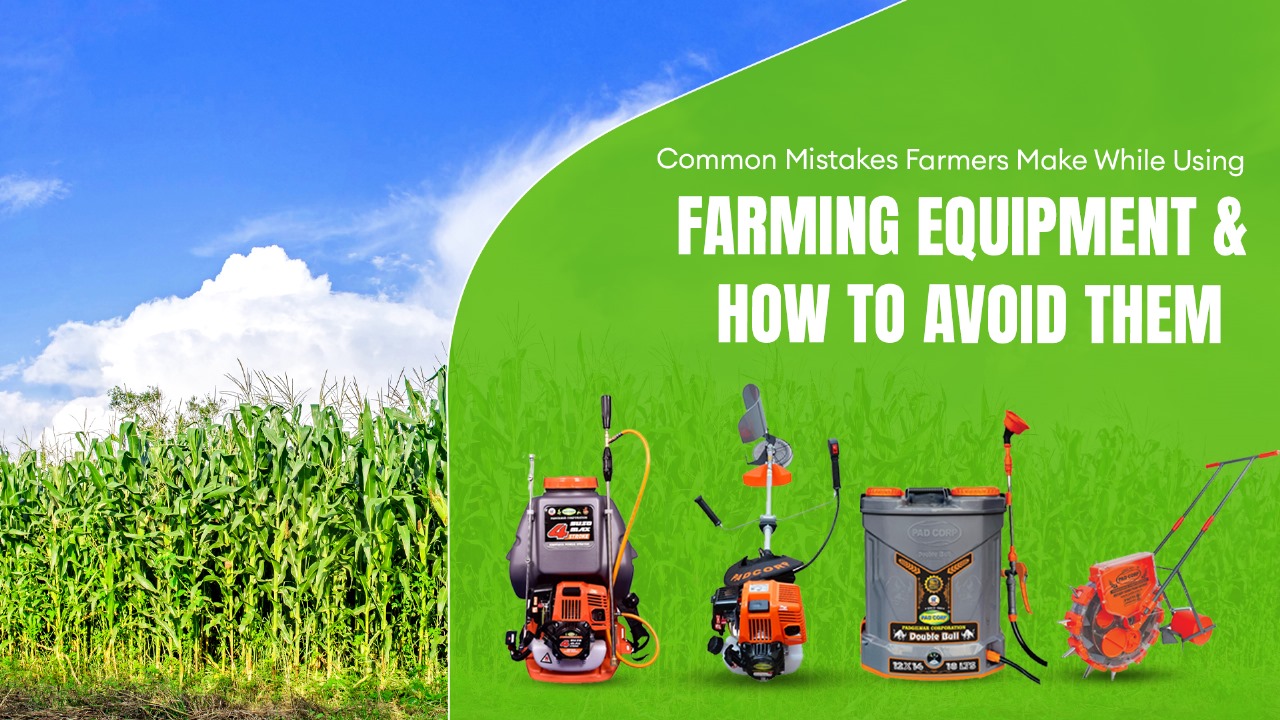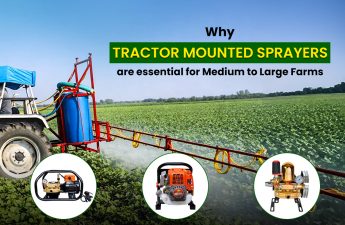Farming equipment needs proper usage for boosting efficiency and prolonging machine life expectancy. The mistakes made by numerous farmers diminish operational effectiveness and create trouble with equipment maintenance and crop damage problems. The identification of these errors, together with their appropriate prevention, will boost farming operations while minimizing financial losses.
Incorrect Use of Fertilizers
The correct use of crop fertilizers remains vital to plant development, though incorrect application methods will generate negative outcomes. Farmers who ignore soil testing will either misuse excessive fertilizer because they mistake more applications for better yield or drop fertilization tasks without soil testing. The excess use of fertilizers creates soil-quality problems that result in crop toxicity and soil degradation together with nutrient imbalances in the soil. The prevention of these issues depends on farmers, who should maintain soil testing to evaluate nutrient deficiencies along with using manufacturer-recommended methods to apply fertilizers.
Improper Handling of Sprayers
Incorrect handling of sprayers poses serious risks to both effective pesticide application quality and human health at the same time. The incorrect choice of sprayer nozzles, together with irregular pumping pressure and absent sprayer calibration, becomes a common problem for farmers. The mistakes in chemical distribution practices produce uneven solutions that waste resources and create safety risks for the plants. The appropriate nozzle choice and steady pressure control, together with regular sprayer calibration, enable accurate applications while reducing excess chemical exposure.
Neglecting Equipment Maintenance
Farming equipment requires periodic service to work at its optimal operational capacity. Regular equipment servicing becomes crucial because non-attendance leads to short equipment lifespan along with increased breakdown frequency and higher maintenance expenses. Farmers commonly perform insufficient maintenance work on their spray pumps by neglecting post-use cleaning moving part lubrication and equipment wear inspections. Equipment durability gets extended, and smooth farming activities continue through the season when farmers conduct proper maintenance to replace old components and complete thorough cleaning tasks.
Using Machinery Without Proper Training
The modern farming tools utilized on farms incorporate advanced technologies that need appropriate handling techniques. Inadequate training of farmers using modern equipment results in both operational inefficiency and safety-related challenges. Farming equipment mishandling during operations leads to crop destruction while it decreases operational yields and heightens dangerous accidents in the field. Implementing proper learning about equipment systems combined with training participation and documentation of manufacturer instructions enables farmers to optimize performance while operating safely.
Ignoring Weather Conditions During Application
When farmers choose to distribute pesticides together with fertilizers as well as herbicides without examining weather patterns, it leads to usage waste together with diminished effectiveness of these chemicals. Water erosion of chemicals from heavy rainfall along with chemical drift from windy conditions can produce negative effects on the intended application area. A safe approach requires spraying during periods of calm weather when it is dry while keeping away from sunshine, which leads to chemical evaporation.
Overloading Farming Equipment
Farmers often exceed machinery capacity limits in order to shortcut their work process. The practice of putting tractor machinery beyond its weight limits causes damage to both engine mechanics that accelerate component deterioration. Use of equipment only within specified capacity limits prevents equipment failure that would otherwise result in expenses for repairs and replacement costs.
Lack of Personal Protective Equipment (PPE)
Any exposure to chemicals or operation of heavy machinery using no protective gear leads to significant health dangers. When handling pesticides as well as fertilizers farmers commonly work unprotected by protective gear which includes gloves masks goggles and appropriate clothing thus putting themselves at risk of dangerous chemical exposure. Workers who use protective equipment while following safety guidelines protect themselves from health risks in addition to establishing a secure workplace.
Inadequate Storage of Equipment and Chemicals
Openly stored equipment together with chemicals become gradually damaged and get contaminated by exposure to severe weather situations. A dry ventilated space needs to store agriculture tools whereas properly labeled sealed chemical containers should be stored in locations shielded from direct sunlight and moisture. The correct warehouse methods maintain chemical efficiency and protect equipment durability through time.
Conclusion
Proper avoidance of common agricultural mistakes enables farmers to enhance their output, safeguard their plants, and extend equipment longevity. Channeling training efforts alongside scheduled care and correct implementation practices of farming tools ensures successful and safe farm operations.
Farming tools from PadCorp such as the Double Bull Portable Battery Operated Sprayer. boost agricultural operations, helping farmers achieve superior outcomes with ease and high dependability.



